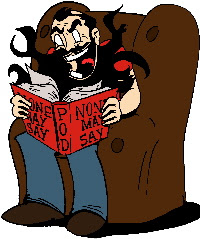 PLOT
PLOTIt all starts when psychoanalyst Dr. Hirofumi receives an odd note from Masuda, a former patient, inviting Hirofumi to join Mausuda at a country spa. Odd because Masuda committed suicide three years ago.
And that is just the beginning. Hirofumi soon discovers that the veil of perceived reality has been ripped away altogether, and the rules of the old world no longer apply. What is left behind is called Summerworld. It is a realm where people can be who they want to be. Or at least who they view themselves as being. And Summerworld is changing to meet the expectations of those who inhabit it.
But Hirofumi also learns that straddling the line between your past and your hopes and dreams for the future can be tricky. Not everyone can walk that tightrope and make the transition. Especially when forces are gathering to push Summerworld entirely off balance.
MY TAKE
It is really quite impressive how Summerworld pulls together its seemingly divergent stylistic threads into such a satisfying tapestry.
Summerworld is deeply philosophical. Author Serdar Yegulalp presents a thoughtful meditation on the fine balancing act between clinging to the past and losing oneself in dreams of change. Yet, philosophy aside, Summerworld also contains several wonderfully involving action scenes. And happily, Yegulalp knows that a battle is all the more exciting when the sides are evenly matched. It never feels like the villains are too strong, and thus that the heroes can only prevail through luck or authorial caprice. Rather, even at the final, spectacular confrontation, there is a pronounced sense of balance, and that only heightens the tension.
Summerworld is in many ways a fantasy novel. It takes place in the world of magic, warriors and dreams that emerges after our modern society has been pushed aside. But the novel also is grounded in reality. On a literal level, remnants of our present world linger even after Summerworld rises. More importantly, many of the characters carry the baggage of their prior lives. As a result, Summerworld's characters feel completely genuine and of this world, notwithstanding their larger-than-life fantasy trappings. On the outside they may be heroes, but on the inside they're people.
Summerworld has a powerfully epic quality. Hirofumi's journey to understand the nature of the threat that surrounds him is fully developed and feels complete. Yet Summerworld also tells smaller, intimate stories about the relationships, both old and new, that are forged in this new world. And these small, understated character moments are just as compelling as the overall saga.
Summerworld's final apparent contradiction is that, despite the scope of Yegulalp's achievement, the novel is in fact only 284 pages long. So even if you're pressed for time, there is absolutely no reason not to go and pick up this fine novel.
AVAILABILITY
Summerworld is available from Lulu (as are Yegulalp's other novels) as a $14.99 paperback. Yegulalp also maintains a personal website that includes, among other information, news about various past and upcoming projects.
BONUS RECOMMENDATION
The members of Mystechs recently announced that they are putting the band on hiatus while they head to Hollywood to pursue their moviemaking dreams. It is hard to argue with their logic: after ten albums in as many years with limited commercial success, they feel it is time, at least for a while, to focus on other creative endeavors.
Happily, while moving forward, the band members appear also to value their years in the music trenches. As one member comments in a recent blog entry, "I don’t think I’m being full of shit when I say I wouldn’t trade the Mystechs experience to play in 98% of the bands that get lots of hype or sell lots of records." Nor have they foreclosed the possibility of returning to music some day, even as they focus for the moment on their filmmaking.
In the meantime, the band leaves behind a substantial musical legacy recorded in several different pop and rock styles. The earlier albums tend to be a bit hit or miss, although they include some songs I truly love, like the bouncy, clever political dance pop of "Shouldn't Be Dancing" from Showtime at the Apocalypse (2002). But the more recent albums, each of which is a witty pastiche of a particular genre, are much more consistent: Dixie Inferno (2008) is a riotous take on southern rock, Hot Tub O' Blood (2007) is an equally warped take on heavy metal, and Escape from Planet Love (2006), my personal favorite, takes on '70s disco and funk.
Straddling the early- and late-period albums is 2005's Warriors and Warlocks, a (very) loose concept album about using fantasy to escape the drudgeries of the workaday world. Any horror movie aficionado will appreciate "Zombie Mountain," an exhilarating three-and-a-half minute zombie flick with a hillbilly twang. But the highlight is title track "Warriors and Warlocks," about a suburbanite's dream to leave behind her "white-bread paradise" for a more exciting world where her inner elven princess can fight dragons, devils and demons. Not a novel theme, certainly, but one that the Mystechs handle with charm, sympathy, and a nicely propulsive chorus.
More information about purchasing all of the Mystechs' albums (including iTunes links for the more recent releases) can be found at their website.
 Note: I don't know whether
Note: I don't know whether  PLOT
PLOT PLOT
PLOT I recently changed the text of a posted review. Not much -- basically only a single word. But it did somewhat alter the meaning of what I originally said.
I recently changed the text of a posted review. Not much -- basically only a single word. But it did somewhat alter the meaning of what I originally said. Wildclown Hijacked by
Wildclown Hijacked by  On the surface,
On the surface, 
